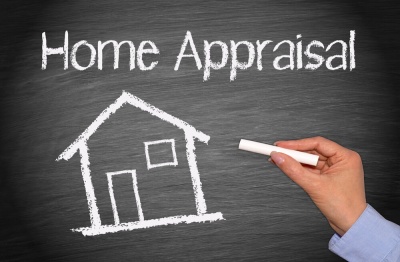Home Values Continue to Rise: Tap into Your Home Equity & Save on High Interest Debt

For the last several years, home values have been rising, which means homeowners have been building equity. Now is a great opportunity to leverage that equity to avoid or eliminate high interest debt.
Recently, the 2018 Houzz & Home Study revealed:
“Homeowners with mortgages have seen their home equity more than double since 2011, increasing to a record-setting $8.3 trillion in 2017.”
The average homeowner gained $16,200 in home equity between Q2 2017 and Q2 2018 according to the latest release of CoreLogic’s Home Equity Report.
Since 2011 home values have increased significantly throughout the country, with prices rising by 5.1% in 2018 alone. When surveyed, homeowners revealed the top four reasons why they felt their homes had increased in value.
-
Desirable Location
-
Improved National Economy
-
Improved Local Economy
-
Low Home Inventory in My Area
How are Homeowners Taking Advantage of this Opportunity?
Many homeowners are considering cash-out refinances as a way to access the value that accumulated in their homes. A cash-out refinance replaces your current loan with a new term, interest rate and monthly payment. Read more about Cash-out Refinances in our latest blog.
Buying a home is like having a “forced savings account.” Making a monthly payment on the loan, along with any property appreciation, builds value in the home.
You cannot access that value (equity), without selling. Instead, you have to borrow the equity, which a Cash-out Refinance allows you to do. Of course, it’s important to have a bit of home equity first.
Wondering How Much Home Equity You Have?
To figure out how much home equity you have, you’ll want to find out what your home’s value is and how much you owe on your mortgage. If the difference between the two is a positive number, that’s the equity you have in the home. However, if you owe more than your home is worth you may not be a candidate for a cash-out refinance.
Speak with a Greenway Loan Officer today to see what your options are. One of the perks of having worked hard to build equity in your home is that the equity is available to you when you need it.
What can the money can be used for?
-
Home Remodeling or Repairs – most popular!
-
Emergency
-
Debt Consolidation
-
Starting a Business
-
Paying off College Tuition
-
Purchase a Second Home
Benefits of a Cash-Out Refinance
-
Potentially secure a lower rate and monthly payment
-
Mortgage rates are typically lower than credit cards or personal loans
-
With improvements, you could increase your home’s value
Bottom Line:
2019 is a great year for homeowners who want to take advantage of their home equity. In fact, CoreLogic forecasts that home prices will increase by 4.8% by the end of the year.
Ready to Take the Next Step?
Reach out to a Greenway Loan Officer for a consultation today to discuss and compare which option would be best for your specific needs. 732.832.2967.

During tax season, refunds help many become homeowners! If you’re planning to buy a home in the near future, consider using your tax refund as a down payment option.
We know that saving for a down payment can be a big challenge and even one of the biggest barriers to homeownership. Many people sometimes overestimate the size of the down payment they need.
Often times, a tax refund may cover the entire down payment. Exactly how much of the down payment you can cover will depend on the amount you want to borrow and the percentage you’re required to put down.
Depending on your credit history and other factors, there are financing options with much lower down payment requirements besides the typical 20% down. For instance, depending on the program, borrowers can make down payments between 3.5%-10%. Down payment assistance programs can also help you bridge the cash gap. Contact Greenway to find out which programs you could qualify for! Visit our website to learn more about our loan programs.
Mortgage products available for First-time Buyers Offering Low to No Down Payments
Bottom line:
During tax season, many tax payers have more funds than any other time of the year, so there is no better time to qualify for a new home. This is a great opportunity – low rates, stable job market, and affordable homes. Why not buy a home now?
Ready to Take the Next Step?
Greenway Mortgage is here to help. Contact us today to discuss your options. 908-489-4658.
Does the Buyer have to pay their Realtor in a Purchase Transaction?

One of the questions our clients have been asking lately is whether or not they are responsible for paying their Realtor a commission. Good news, if you’re buying a home, you’re off the hook. Many buyers are surprised to learn that real estate commissions come from the “sell side” of a transaction.
Let us explain how real estate commission works.
First, let’s take a look at the difference between a Real Estate Agent and a Real Estate Broker.
Real Estate Agents are self-employed and work under the license of their particular brokers.
Real Estate Brokers are licensed to own and run a real estate brokerage and can hire and mange other real estate agents. They represent clients who are buying or selling real estate. All fees paid to a Real Estate Agent must first pass through the broker.
How much is Real Estate Commission?
The commission owed on a particular real estate transaction is sometimes a flat fee, but is usually the percentage of a sale price and is typically no more that 6%.
For example, say a home sells for $300,000 and the seller’s listing agreement indicates a 6% commission, then the total amount owed is $18,000.
So, who pays that money and to whom?
When someone sells their home using a Realtor, they are responsible for paying the commission out of the proceeds of the transaction. The buyer does not pay. Instead, the buyer’s Realtor is compensated by the listing agent’s broker by splitting up the commission paid by the seller.
There are some exceptions, but all fees usually come out of the sellers’ proceeds while buyers generally pay nothing to the agent who represents them.
Who’s Involved in the Deal?
-
Seller
-
Listing broker
-
Listing agent (represents seller and lists the home on the market)
-
Buyer
-
Buyer’s broker
-
Buyer’s agent (represents the buyer, gets paid from the listing broker’s commission split)
Take a look at this example here to get a better idea of how commission fees are split:
.jpg)
Note: Actual commission amounts and agency/agent splits will vary by transaction
Still have questions on how commission fees work? Contact us today!
We are happy to answer all of your questions!
Fill out the quick form below and one of our Loan Officers will get back to you shortly.
Are you a first-time homebuyer? Download our FREE “Guide To Buying Your First Home". Inside you’ll find everything you need to know about the mortgage process, how to get your house in order, first-time homebuyer programs, handy checklists and so much more!

When you’re ready to get a home loan, it can help to have as much information about the mortgage process as possible. That way you can take the right steps towards getting your loan, and hopefully avoid some of the more common pitfalls along the way. To help you reach your goal of homeownership, here’s a list of do's and don’ts as you start with the process of getting a home loan and buying a home.
DO:
Keep All Records in Good Order.
-
Availability - Keep your financial records close at hand in case updates are requested.
-
Income – Be aware that underwriters typically verify your income and tax documents through your employer(s), CPA, and/or IRS tax transcripts. Hold onto new paystubs as received.
-
Assets – Continue saving incoming account statements. Keep all numbered pages of each statement. Ex. 8 of 8.
-
Gifts – If you're receiving any gift money from relatives, they'll need to sign a gift letter (we’ll provide) and an account statement evidencing the source, which must be "seasoned" funds.
-
Current Residence – If you're renting, continue paying your rent on time and save proof of payment. If you're selling your current residence, be prepared to show your HUD-1 Settlement Statement. If you'll be renting your home, you may need to show sufficient equity, a lease and receipt of the first month’s rent and security deposit.
Keep your credit shining. Continue making payments on time. Your credit report may be pulled again, and any negative change to your score could cause you to lose your approval and your home.
Understand that things have changed. Underwriters require more documentation than in the past. Even if requests seem silly, intrusive or unnecessary, please remember that if they didn't need it, they wouldn't ask.

DON’T:
Apply for new credit. Changes in credit can cause delays, change the terms of your financing or even prevent closing. If you must open a new account (or even borrow against retirement funds), please consult with me first.
Change jobs during the process. Probationary periods, career or even status changes (such as from a salaried to a commissioned position, leave of absence or new bonus structure) can be subject to very strict rules.
Make undocumented deposits. Primarily large but sometimes even small deposits must be sourced unless they are identified. Make copies of checks and deposit slips. Keep your deposits separate and small. Avoid depositing cash.
Wait to liquidate funds from stock or retirement accounts. If you need to sell investments, do it now and document the transaction. Don't take the risk that the market could move against you leaving you short of funds to close.
Ever be afraid to ask questions. If you're uncertain about what you need or what you should do, Greenway Mortgage is here to help you through the process, even long before you intend to buy.



.jpg)


.jpg)
